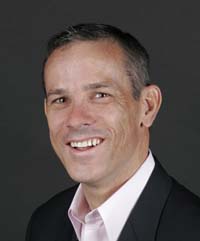Home » Justice, Mercy and Mass Incarceration » Attending to the Forgotten
Attending to the Forgotten
Posted by anderc8 on Thursday, January 5, 2017 in Justice, Mercy and Mass Incarceration, News.
Written by Vanderbilt Divinity School professor Graham Reside
I teach at Vanderbilt Divinity School, in the area of Ethics and Society. I grew up under conditions of relative privilege, a white guy from a middle class background. As a young college student, I had a friend who was convicted of murdering his girlfriend in a fit of rage. It was tragic. One life was ended. Another life was irrevocably damaged. In brief order, my friend vanished from my imagination. I never visited him, and while I exchanged a couple letters, soon enough he was merely a distant memory. And his girlfriend was lost forever. Over the years, I heard of other acquaintances and friends who had run-ins with the law, but these people too slipped away from my mind and my concern. To be incarcerated, too often, is to be forgotten. Why?

Vanderbilt Divinity School professor Graham Reside
It was only much later, when I was at Princeton Seminary, that I met people who refused to forget those who were imprisoned for some crime or another. My fellow students reminded me that it is part of the call of people of faith to attend to the unattended, to visit the sick and the imprisoned. The theologian Dietrich Bonhoeffer, himself imprisoned and executed for his part in a plot to assassinate Hitler, articulated this religious obligation: For him, a goal of the Christian life was “…to see the great events of world history from below, from the perspective of the outcast, the suspect, the maltreated, the powerless, the oppressed and reviled, in short from the perspective of suffering.”
This call to attend to the unattended is one that is elemental to the life of faith. Beyond a religious calling, however, there is an intellectual interest as well that begs us to examine our practices of incarceration. Bonhoeffer’s recommendation is good not only for the soul, but for the mind. There is much to be learned, to be discovered, when we examine the edges, the shadows, and the boundaries of our worlds, when we take up the perspective of the outcast and reviled. The uncomfortable world of criminal justice is a world rife with potential discoveries. We learn not only about “them,” we also learn about “us.” We learn about moral psychology, politics and economics. We learn who we are as a society. As the sociologist Emile Durkheim noted more than a century ago, crime and punishment are indicative of a society’s deepest values. What we criminalize tells us who we want to be. It tells us what we reject and what we accept. How we respond to the criminal tells us who we are. Our deep values are contained in our approach to criminal justice.
When my intellectual curiosity and my religious motivation met, I began to get curious about how and whom we punish in our society. Attending to the unattended in the USA leads to some very unsettling discoveries. Crime and punishment studies starkly reveal racial and class cleavages and disparities, with people of color much more likely to be criminalized and to suffer punishment. And our practices of punishment are striking for their cruelty and wantonness. As a citizen, it is hard to square our punishments with my sense of American optimism and respect for all. As a person of faith, it is hard to see the operation of justice or grace in what has come to be called the prison industrial complex.
But at the same time, my own friend’s story reminds me: crime can have immense and devastating consequences. Lives are destroyed, bodies damaged, futures corrupted and lost. What does a truer criminal justice look like? Attention to these questions and these realities drove us to conceive of a course that seeks to investigate theories of crime and punishment from a multi-disciplinary perspective. What does a good society require? How do we manage violation of our norms and rules? How can we limit human destructiveness rather than add to it, through ruthless and cruel and ineffective punishment? Any investigation of current practices will lead to the conclusion that our system does not work and is unfair and harsh.

Vanderbilt Law School professor Ed Rubin will co-teach this course
It is the conceit of this course on Justice, Mercy and Mass Incarceration that religion and law particularly have a lot to teach us about how human beings have and should think about sin, violence and the human propensity for cruelty. Both the Law and Religion have sacred texts (the Constitution and Scripture) that offer foundational articulations of how to address these human realities in ways that are life-giving rather than life-destroying. Over the semester we will study various theories of crime and punishment. We will explore religious and legal pronouncements on crime and its management. And we will investigate deeply the experience of incarceration and punishment in America today. We want to ask difficult questions: why do societies punish? What are the ends of criminal justice? What does justice mean in relationship to human violence and social disorder? Who suffers and why? What does it look and feel like to be a prisoner today? How do we explain the racial disparities and the social consequences of our current system of mass incarceration? Why is our system punitive and unfair? And we will end our deliberations with explorations of alternative forms of addressing crime. Are there lessons to learn from our experiences in the US and from the experiences of others? How should we reform our current system? Can we find a better path to justice and mercy in the world? These, it seems to us, are questions worthy of a Vanderbilt University course.
